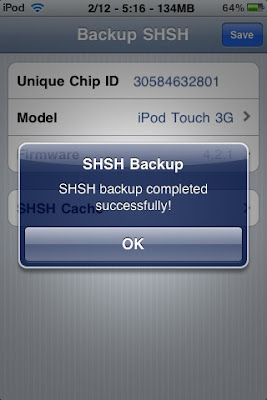Apple vs Google - Closed vs Open
For years now, we've been hearing the arguments between the two major mobile platform holders, Google and Apple. Google has steadfastly argued in favor of their open Android platform, while Apple has stuck by what many call their "walled garden" operating system. Tonight on "Point/Counterpoint:" iOS vs. Android users...open vs. closed.
The Control Freak
It's no secret that the Houser of Jobs can be control freaks (both Uncle Steve in particular and, by extension, the company in general) when it comes to their platforms. This means no apps without Apple's authorization, no major customization, subscriptions must be handled under their watch. Yeah, it's a real "my way or the highway" attitude, and they don't care who you are. If they don't like it, they'll reject it without a second thought or explanation.
In other words, iOS is their playground, and you only get to play with as many marbles as Apple feels like giving you. In fact, that's why many of us jailbreak: it's a way for us to get the operating system we enjoy, but without user limitations set by Apple. That's how jailbreakers were enjoying folders and custom wallpapers long before Apple introduced them in iOS4. Bypass the control freaks, and set your phone free.
The thing is, we know what to expect when it comes to Apple. They haven't changed, and we're pretty sure they won't. On the other hand, they are sticking to their guns.
The Big Fat Liar
Now let's look at Google and their much-vaunted open platform. Not only don't developers have to suffer the tedious Apple approval process, but the phone manufacturers themselves can use the platform to create their own flavor of Android. This can be great, but it means that many of the phones are different. When you pick up an HTC phone running on Android, it's a build that caters specifically to HTC's handset, and can even have extra software that's specific to the carrier or the manufacturer. At least, that was the case; in recent months, Google have been demanding that licensees follow their "non-fragmentation clauses." They keep it open while it suits them, but they've since changed their song to "My Way."
Recently,
BusinessWeek reported that over the last couple of months Google has been discussing with major characters and enforcing some new rules. As the article puts it, "No more willy-nilly tweaks to the software...No more partnerships formed outside of Google's purview." From now on, phone makers and cellular carriers will have to seek approval from Google's Andy Rubin to venture off the "Green Brick Road."
To say that this new edict went over like a lead balloon is an understatement: reportedly, these new rules have even been enough to cause makers to run to the Justice Department to complain.
Was it Inevitable?
Back in October, Rubin
Tweeted a response to a comment that Steve Jobs had made about their fragmentation during an earnings call. It was the following code:
the definition of open: "mkdir android ; cd android ; repo init -u git://android.git.kernel.org/platform/manifest.git ; repo sync ; make"
Recall, too, what Google executive Vic Gundotra said in his keynote at I/O last year:
"If Google didn’t act, it faced a draconian future where one man, one phone, one carrier were our choice. That’s a future we don’t want...So if you believe in openness, if you believe in choice, if you believe in innovation from everyone, then welcome to Android."
We cannot deny the popularity of the Android platform. However, the fragmentation that came with every manufacturer wanting to use Google's free software seems to have finally given the House of Droid a reason to rethink things.
Or maybe it was a plan all along? Can you say "bait and switch," boys and girls?
This whole mid-course correction is, as reported by BusinessWeek, "about quality control, fixing bugs early, and building toward a 'common denominator'." This means that Google will have say over how their source code is tweaked. Control freaks, anyone?
In Conclusion
For now, it seems that manufacturers can still tinker with the Android source code. How it will change for the user is hard to say at this point. This much is certain: Google now has much more control over the Android platform, and how it's used by smartphone makers.
Recently, Google has gone so far as to withhold Honeycomb source code to developers, allowing only Motorola first dibs with their Xoom tablet. This is totally against what Google's past of "open source" has been. Google's Rubin has said that if they were to make Honeycomb open that early on, it would lead to developers putting the software on smartphones and "creating a really bad user experience."
Interestingly, former Google CEO Eric Schmidt didn't support the idea of giving users the option to go to a stock version of Android by saying "put those type of restrictions on an open-source product, we'd be violating the principle of open source."
The lesson learned here (and Nokia should take notice in particular): unless you own the platform you have little say at the end, especially when you depend on said platform. Can Verizon abandon Android after spending millions on Droid marketing? No. All they can do is shut up and let it happen.
The issue at hand here is not that Google cannot take control over their platform, the issue here to stop talking about your "open" platform as open. Take control and clean up the mess Android fragmentation is (yes, custom UIs are on the list), but please do not point at Apple, you big fat liar.
Sorry, but we'll stick with the control freak.

 RSS Feed
RSS Feed Twitter
Twitter